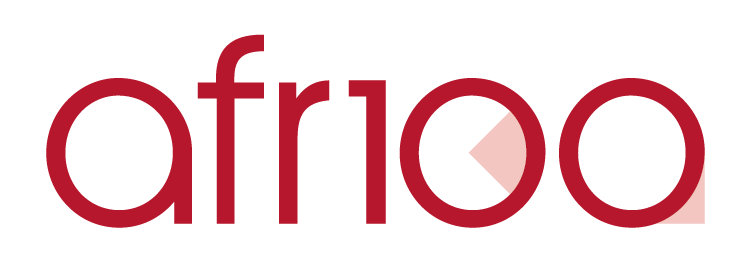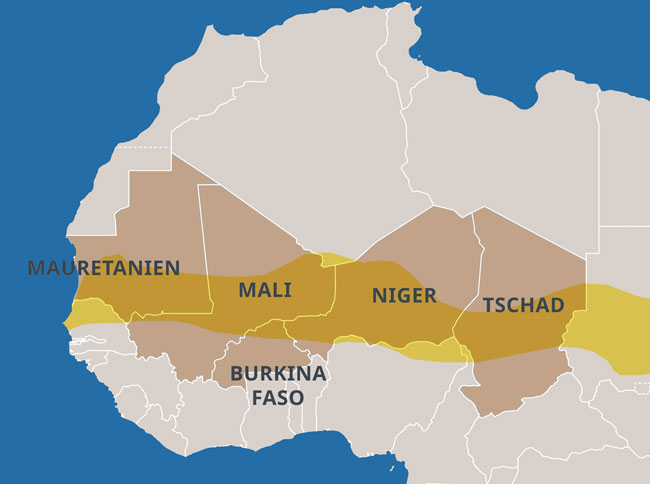
The African Forest Landscape Restoration Initiative aims to restore 100 million hectares of forest in Africa by 2030. In Burkina Faso:
In times of famine and crisis, we are ready for operative implementation with our network of over 400 farmers’ organisations.
Since 2015, politicians and the media have been talking about a “refugee crisis”. When we think of refugees, the images of our media coverage appear: Fugitives from Syria, Eritrea, Afghanistan or the IRAK. Europe is under the impression of being the main victim of the global flight movement that is taking place via the Mediterranean, the “Balkan route” and Turkey. A differentiated view as far as Africa shows a different picture; flight and expulsion are an integral part of many African states with post-colonial social and spatial structures: the real “refugee crisis” is currently not taking place in Europe but in Africa.
All Europeans should think about an Africa of 2.5 billion, mostly young people, in 2050, when there will be only 450 million Europeans, mostly older. An economically stronger Africa can also become a cause for concern for Europe, because more and more Africans will have money and the opportunity to try their luck in Europe – unless their home country offers no reason to do so.
Development aid and classical development cooperation in their tried and tested form cannot solve these problems alone. Only as a community and with the support of private investments we still have the chance to achieve great things. Let us demonstrate this in Burkina Faso and become a model for the entire Sahel zone. This gives the idea of the Marsall Plan“new partnership for development, peace and the future” a clear profile.
Burkina Faso is severely threatened by climate change. Unadapted land use methods and increasing pressure on natural resources due to population growth have led to a severe degradation of agricultural land.
The destabilisation of Burkina Faso and the entire Sahel region can have far-reaching consequences for Europe. The Sahel has been confronted with desertification and its consequences for more than three decades and is a key player in the international and regional fight against environmental degradation and poverty. Islamist attacks will aggravate the tense situation in 2020 and will result in almost 1 million refugees, which we will help to protect with our >g id=”gid_1″>
emergency aid
support.
“We need a paradigm shift and must understand that Africa is not the continent of cheap resources, but that the people there need infrastructure and a future.
German Development Minister Dr. Gerd Müller
AFRI100 was launched by a group of African nations on the occasion of the Paris Climate Agreements. By 2030, Burkina Faso should stop land degradation and implement the restoration of 5 million hectares of degraded land – an undoubted historical dimension that the poor country cannot achieve on its own. The reports of the partner meetings of AFR100 in 2018 showed that the implementation of the formulated goals can only be achieved through increased involvement of local smallholders and increased involvement of technical partners.
The chain of effects is long and the knowledge about the interrelationships is controversial. There is no lack of international declarations of intent to restore global forest areas. Last but not least, only the results of the implemented projects will count – Terra Verde and IDD Burkina have been taking responsibility since 2006 – challenge and promote our scalable results.
Politicians from Ghana and Mali have already become aware of our successes and have asked for constructive exchange. Burkinabe politicians are increasingly orienting themselves towards the measurable effects of our projects and thus provide us with a basis for supporting farmers’ associations and political decision-makers in the capital Ouagadougou as an independent consultant.
Support us in setting up a branch in Burkina Faso and in the current
Hungersnot
.

The principle “Stones against deserts” has been developed further since 1987 and has been continued and implemented by Terra Verde / IDD Burkina since 2006.
For a handful of effect:
Guaranteed food security
It would take 20 years and cost around EUR 50 million a year to cover all erosion-prone arable land with contour stone walls. This is an affordable sum that is far below the international community’s annual funding expenditure and guarantees food security for a rapidly growing population.